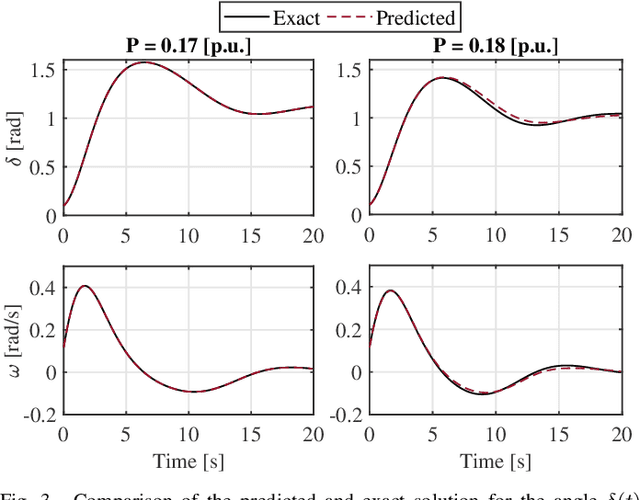Physics-Informed Neural Networks for Power Systems
Paper and Code
Dec 22, 2019


This paper introduces for the first time, to our knowledge, a framework for physics-informed neural networks in power system applications. Exploiting the underlying physical laws governing power systems, and inspired by recent developments in the field of machine learning, this paper proposes a neural network training procedure that can make use of the wide range of mathematical models describing power system behavior, both in steady-state and in dynamics. Physics-informed neural networks require substantially less training data and result in much simpler neural network structures, while achieving high accuracy. This work unlocks a range of opportunities in power systems, being able to determine dynamic states, such as rotor angles and frequency, and uncertain parameters such as inertia and damping at a fraction of the computational time required by conventional methods. This paper focuses on introducing the framework and showcases its potential using a single-machine infinite bus system as a guiding example. Physics-informed neural networks are shown to accurately determine rotor angle and frequency up to 87 times faster than conventional methods.
 Add to Chrome
Add to Chrome Add to Firefox
Add to Firefox Add to Edge
Add to Edge